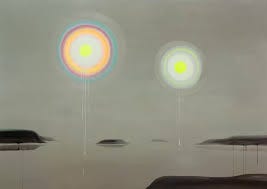At the start of Zadie Smith’s excellent personal essay “The Art of the Impersonal Essay” in this week’s New Yorker, she shares a simple structure technique that changed her life. In high school, she writes, “An English teacher took me aside and drew a rectangle on a piece of paper, placed a shooting arrow on each corner of the rectangle, plus one halfway along the horizontal top line, and a final arrow, in the same position, down below. ‘Six points,’ this teacher said. ‘Going clockwise, first arrow is the introduction, last arrow is the conclusion. Got that?’ I got that. He continued, ‘Second arrow is you basically developing whatever you said in the intro. Third arrow is you either developing the point further or playing devil’s advocate. Fourth arrow, you’re starting to see the finish line, so start winding down, start summarizing. Fifth arrow, you’re one step closer to finished, so repeat the earlier stuff but with variations. Sixth arrow, you’re on the home straight: you’ve reached the conclusion. Bob’s your uncle. That’s really all there is to it.’”
Smith still uses the rectangle. “Still think about it every time I sit down to write one of these things you are reading right now. I continue to admire its impersonal and ruthless forward thrust.”
In college, she sputtered around, writing impassioned, chaotic, narcissistic essays, growing angrier and angrier about the lie of meritocracy at her elite school, until she fell under the tutelage of a few essayists who were not from the upper class, and for whom class awareness was never separated from literature. “I started thinking about my essays differently. It wasn’t about what Andrew Marvell meant to me, personally. It was about what Andrew Marvell’s “The Garden” revealed about the English attitude to land and capital. I developed a different sense of what an essay could be. I understood all three men to be “personal essayists” in the sense that they cared passionately about their subjects, but they themselves were rarely figures in any particular piece; their energies were directed elsewhere. And I followed their example, channelling my furies into coolly expressed explication, description, analysis.”
Now in adulthood, she says her essays are meant for a general reader in mind. “They’re no more directed at the Bed-Stuy grad student in a polycule than at the overworked Delhi nurse or the rich Lagos lawyer. Though I’ve never wanted any reader (or anyone, really) to “relate” to me, exactly, I have always wanted to be “in relation,” which is different. We aren’t required to be like one another or even to like one another to be in relation. We just need to be willing to create and enter spaces in which solidarity is one of the possibilities. That’s what the practice of essaying is, to me: a stumbling attempt to re-create, in language, a common space, one that is open to all.”
Reaching for the ‘we’ can also produce terrible writing, she readily acknowledges. “Sometimes the very act of seeking solidarity is characterized merely as the pursuit of “common ground,” a destination easily disparaged as a middling, nowhere, apolitical place. At other times, it is suspected of being a happy-clappy zone of magical thinking, where people have to pretend to be the same and to have experienced identical things in order to work together. I’d rather think of it as “the commons.” And when I sit down to essay I find it helpful to remind myself of the radical historical roots of that concept.”
This all called to mind an early mess of my own making, when I was a senior in college facing imminent failure in Advanced Calculus at Columbia, a class for which I needed to pass in order to graduate. In the blue books of our final exam, I did not answer any of the problems set forth - because I couldn’t, not even close. Instead I wrote a letter. I said plainly that I was in way over my head, that I had signed up for the class immodestly, having breezed through Calculus in high school. I assured my teacher that if he chose to pass me that I wasn’t going to unscrupulously move on to a life in advanced math or science; merely, I hoped, one in writing.
Then I took the calculus problems he’d created for students to solve and I used them as writing prompts, riffing a series of interconnected short stories. I was writing for my life, like the contestants facing elimination on the reality competition show “So You Think You Can Dance,” who get the chance to perform their way out of being kicked off with a one minute solo. On the series they call it “Dance for your life” and it always produced rather strenuous performances. Like this one. Or jeez this one.
I still have nightmares about that Calculus exam - in the dream I know failure is imminent but I can’t even find the class room. I can’t even find an administrator who can tell me where the class room is.
It had all felt a little desperate. I had no reason to believe that he would get or like my sense of humor, or see the humor in the situation at all. My professor was relatively new to America from China and spoke with a thick accent. But in the writing, I had to let that go. I had to take a chance on the power and possibility of that “we” space that literature can create - that my writing could create. I had to take a gamble that if I could contextualize my life, human to human, and be honest, measured, mature, articulate and authentic, and then share my talent, that it might just... be enough.
And it was. My professor seemed to very much enjoy my blue books and gave me a B. I went on doubting myself as a writer for many years - but this little episode should have actually confirmed to me that I had a gift. That I already seemed to understand how to do something very deep, which was to bring my reader into a space where we both were very real, and in a tough, but often benevolent, world together.
“…in these fractious times,” Smith writes, “although our commonalities may prove dispiritingly tiny or difficult to locate, they still exist. We’ve managed to locate them before, and not so long ago, using language as our compass.”
This is the main trick - or work - of essay writing, maybe all writing - and this is what Smith gets to in her piece - the creation of that “we” space. “…the word ‘we’ appears in my essays pretty frequently. This isn’t because I imagine I speak for many, or expect that my views might be applied to all, but because I’m looking for the sliver of ground that ‘we’ is applicable. Because once you find that sweet spot you can build on it.”
For all of the awful instability human beings face, it is in some ways beneficial for their writing to have been high and low, extremely employed and unemployed, wanted and discarded, belong and not belonging. Smith writes about how much the “I” in her story has changed: “I have been, for example, very single and very married. I’ve been poor, middle class, and wealthy. I’ve loved women, I’ve loved men, but loved no one for their gender specifically—it’s always been a consequence of who they were. Sometimes I’ve sat at my desk dressed like Joan Crawford. Other times, like someone who has come to fix your sink. I’ve sat there utterly childless and then very much full of child, or with a child in a Moses basket at my feet. I’ve been the mother of a British citizen and then the mother of an American. As a semi-public person, I’ve been the subject of various projections, and watched unrecognizable versions of “me” circulate in the digital sphere, far beyond my control. But I also remain who and what I have always been: a biracial black woman, born in the northwest corner of London, to a Jamaican mother and an English father. I personally feel like an outsider who belongs nowhere—and have never really minded this fact—but in the commons of my essays I understand that many or even most of my readers feel otherwise about this thorny matter of “belonging,” so I am often trying to write the kinds of sentences that remember this key fact, too.”
To essay, she reminds us, is to try.
C’mon Let’s Go All Over the Country
David Byrne kicks off his “Who is the Sky” national tour at Radio City Music Hall this week. He’s one of the gentle, powerful, brilliant masters of this era and he knows how to make even the most discerning crowds feel good. Do you know that in the history of time, no one has ever regretted going to a David Byrne concert? Tickets.
Also heading out this fall on a national tour is Stereophonic, the phenomenal play with music set in a 70s recording studio by David Adjmi, with songs by Will Butler, which won a bajillion deserved Tonys. Tickets here.
All paintings by Wanda Koop, whose show Magnetic Field will be on view at Arsenal Contemporary Art through November 1.
Thank you for reading and thanks especially to my paying subscribers, who keep Refreshments replenishing.
Do you want to work on your writing? Do you know to find the we and write your guts out, but just need a kind, skilled teacher, and a bunch of excellent fellow students? If that’s you, it is not too late to join my next memoir and personal essay writing class, which takes place for seven weeks on Zoom and begins Wednesday October 1. There is more info here and you can register there as well. Happy to answer any questions you may have.
I will leave you with this gem. Do you remember this fargin song??!?!??!?!
xo Lizzie







I will read this one many many times.
Thank you, Lizzie